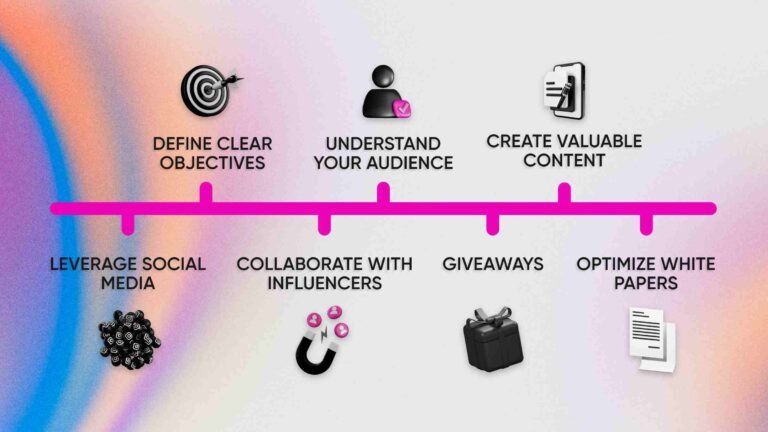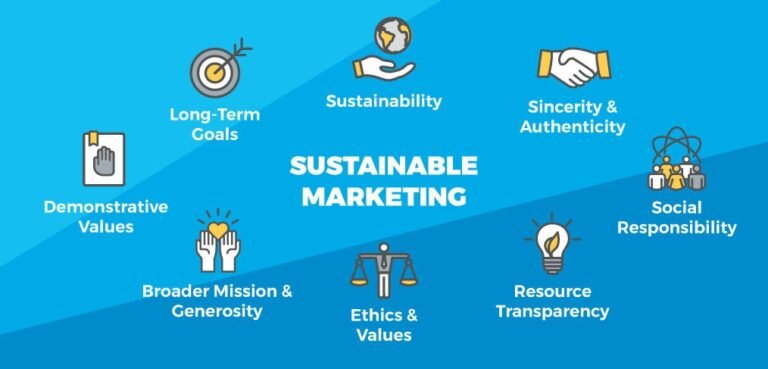Top Tips to Build a Brand That Resonates with Millennials
Tips to build a brand that resonates with millennials, you need to tap into three key ingredients: authenticity, social responsibility, and innovation. This generation values brands that feel real, align with their values, and bring something fresh to the table. But how do you make that magic happen? It starts with truly understanding their preferences and what makes them tick. Millennials don’t just want a product or service; they want a brand they can connect with on a deeper level.
This article will guide you through the process of creating a brand that stands out in a crowded marketplace. We’ll explore how to craft a compelling brand story that speaks their language, harness the power of social media to build a loyal community, and infuse purpose into your mission. Whether you’re launching a startup or refreshing an established brand, these strategies will help you capture the attention—and trust—of millennials. Let’s dive into how to make your brand not just memorable but meaningful.

Key Takeaways
- Understanding the demographics and psychographics of millennials is crucial for brands to tailor their strategies and foster loyalty.
- An authentic brand story and clear purpose resonate well with millennials, leading to deeper connections and enhanced trust.
- Utilizing data-driven personalization and user-generated content enhances engagement and builds a strong community around the brand.
Understanding Millennials as a Target Audience

Understanding your target market is essential for building an effective brand. Millennials, aged 25 to 40, have distinct preferences and behaviors that influence their purchasing decisions. Thorough market research helps brands grasp these dynamics and tailor their strategies accordingly.
Paying attention to common habits, platforms used, and engagement styles allows brands to develop strategies that resonate with millennial values. Detailed audience definition helps communicate directly to millennials, creating tailored strategies that build brand awareness and loyalty.
Millennial Demographics
Millennials, aged 25 to 40, form a significant portion of the target audience for many brands. They play a crucial role in shaping shopping habits and preferences. Understanding their educational and employment status is vital, as these factors significantly influence their buying behaviors.
Recognizing these demographics allows brands to tailor their strategies to meet the specific needs and preferences of millennial consumers, staying ahead of market trends and fostering deeper connections.
Millennial Psychographics
Millennials prioritize values such as authenticity, social responsibility, and innovation when engaging with brands. They seek genuine connections and transparency, which significantly impact their loyalty and purchasing choices. Brand messaging must therefore reflect authenticity, transparency, and honesty to resonate with millennials.
In addition to authenticity, millennials value sustainability and social responsibility in their brand interactions. Brands that emphasize these values often see higher engagement and loyalty from millennial consumers.
Understanding these psychographics allows brands to create strategies that align with millennial values, ensuring meaningful engagement and long-term loyalty.
Crafting an Authentic Brand Story

A compelling and authentic brand story is at the heart of effective brand building. This emotional narrative about what the company does, why it exists, and its values helps humanize the business and create meaningful connections with customers.
For millennials, authenticity is key to building trust and meaningful engagement. Crafting a transparent and authentic brand story helps brands resonate deeply with millennials and stand out from competitors.
Defining Your Brand’s Purpose
A clear brand purpose connects with audiences and articulates core values. It should communicate what the brand aims to accomplish, guiding all interactions and communications. Authentic and socially conscious brands foster a more engaged customer base.
Establishing a brand’s mission creates a cohesive story that reflects its purpose throughout all interactions. Understanding how the product benefits the customer and addressing their needs through the brand narrative helps build a strong brand identity and foster loyalty.
Storytelling Techniques Tips to Build a Brand
Effective storytelling techniques connect with millennial consumers. Identify characters, their challenges, and show how the brand helps overcome these hurdles. This approach supplements the brand’s mission statement and highlights what distinguishes the brand from competitors.
User-generated content enhances brand relatability and authenticity, essential for engaging millennials. Creating valuable content that educates and entertains resonates well with them, fostering deeper connections and building a strong brand identity.
Developing a Distinct Brand Voice
A distinct brand voice is critical for resonating with millennials. A well-defined voice ensures consistency across all customer interactions, contributing to a coherent identity. Tone, word choice, and style of language should align with the audience’s values and reinforce the brand’s voice.

Aligning Brand Voice with Values
A brand’s voice should reflect its mission statement and core values, making it relatable to the target audience. Authenticity and transparency resonate with millennials, and the brand’s voice should embody these qualities. Consider the audience’s preference for casual or formal language when determining the tone.
A style guide outlining consistent communication helps maintain brand consistency. Analyzing customer communication and running A/B testing can help identify language that resonates with the audience, ensuring the brand’s voice is effective and engaging.
Consistency Across Platforms
Consistency across social media platforms builds trust with customers. Your brand’s personality should be reflected in every post and marketing campaign, ensuring a similar experience across platforms. This consistency cements brand identity and fosters loyalty.
Apply branding elements consistently in all business ventures, from social media to website copy, to maintain a uniform tone. This approach ensures the brand’s voice and personality are consistent, regardless of the platform or context, strengthening the brand’s image and building a strong online presence.
Building a Strong Visual Identity

A strong visual identity is crucial in brand marketing, especially for millennials. Visual elements like logos, color schemes, and typography collectively represent a brand and help it stand out from the competition. A cohesive visual identity resonates emotionally with millennials, fostering deeper connections and building loyalty.
Logo Design
A logo serves as the face of the brand, distilling its brand’s identity into a recognizable symbol. Effective logos include a distinctive image that reflects the brand personality and mission statement.
A flexible logo with various iterations ensures it scales appropriately for different applications, from websites to print materials. Consider using common designs like wordmarks and hire a professional if needed for the best results.
Color Palette
Choosing the right color palette is crucial as different colors evoke specific emotional responses in consumers. Brands should select color combinations that evoke feelings customers associate with the brand. For example, blue makes viewers feel relaxed, while red creates a sense of urgency or excitement.
A well-chosen color palette maintains brand consistency and reinforces the brand image.
Typography
Fonts play a significant role in maintaining brand identity and readability. They should match the overall aesthetic and tone of the brand and be legible at any size. A brand’s font scheme should include one to three fonts consistently used across all branding materials.
Simple, accessible fonts are recommended for websites and product information to ensure readability and enhance the overall visual identity.
Leveraging Social Media for Engagement
Social media is a powerful tool for engaging with millennials. A strong online presence and user-friendly website are crucial for connecting with them and building brand awareness. Aligning tactics with their preferences and utilizing innovative technology enhances visibility and engagement on social media platforms.
Creating compelling content and offering interactive experiences is essential for engaging millennials successfully.

Choosing the Right Platforms
Choosing the right social media platforms is essential for reaching millennials. Instagram and TikTok are particularly effective due to their popularity and high engagement levels. Brands should research where their audience is most active and tailor their strategy accordingly to maximize engagement and build loyalty.
Focusing on the right platforms helps brands create stronger connections with millennials and enhance their social media presence.
Content Strategy for Social Media
Engaging content that provides value, such as educational or entertaining posts, is crucial for capturing millennials’ attention. Interactive experiences, such as user-generated content campaigns, strengthen connections and foster deeper engagement. Emphasizing storytelling and visuals that resonate with their experiences and interests is key to a successful social media strategy.
Case studies of brands that successfully engage with millennials offer valuable insights into effective branding strategies. Monitoring engagement rates, including likes, shares, and comments, reflects the level of interaction and helps refine the content strategy to better meet their preferences.
Influencer Collaborations
Collaborating with influencers can significantly enhance brand perception and reach. Millennials trust influencer recommendations, making partnerships a powerful tool in shaping brand perception. Leveraging influencers’ trust and reach helps brands appeal more effectively to millennials and build awareness.
Focusing on influencer collaborations that align with the brand’s values ensures authenticity and higher engagement.
Prioritizing Sustainability and Social Responsibility
Millennials seek authenticity and social responsibility when considering brands for purchase. They value transparency and genuine interactions, which significantly impact their decisions. Aligning brand purpose with millennial expectations and focusing on sustainability and social responsibility cultivates lasting trust and loyalty.
Prioritizing these brand values helps create value-driven brand experiences that resonate with millennials.
Sustainable Practices
Highlighting your brand’s commitment to sustainability fosters trust and loyalty among millennials. Embracing environmentally conscious practices and ensuring ethical sourcing significantly impacts their preferences. Brands demonstrating a clear stance on sustainability and ethical practices are more likely to attract millennials, as seen with purpose-driven brands like Patagonia and TOMS.
Community Engagement
Building a sense of community is crucial for engaging millennials. Community-building initiatives enhance loyalty and deepen connections. Authenticity, shared values, and continuous engagement are key elements for building community among millennials.
Experiential marketing focuses on creating engaging and meaningful experiences and resonates particularly well with millennials. Events related to sustainability, wellness, or social justice can further strengthen these connections.
Engaging millennials through user-generated campaigns strengthens brand loyalty and community engagement. Leveraging innovative technology, brands can create interactive experiences that resonate with millennials, fostering a deeper sense of community and belonging.
Creating Personalized Brand Experiences

To capture the attention of millennials, personalized experiences are crucial. Offering tailored products fosters their loyalty. Experiential marketing, emphasizing meaningful experiences, effectively connects brands with millennials. Focusing on personalization creates more relevant and engaging experiences that resonate with them, fostering stronger connections and loyalty.
Data-Driven Personalization
Utilizing data effectively allows brands to tailor their efforts to millennial preferences. Data-driven personalization requires a unified view of customer interactions across various platforms to create timely and relevant experiences. Data fragmentation hinders personalization efforts, leading to disjointed strategies.
Integrating data from different sources helps brands create a seamless and personalized experience, enhancing customer loyalty.
User-Generated Content
Integrating user-generated content into brand messaging enhances brand identity and makes the brand more relatable to millennials. It deepens connections by showcasing authenticity and community involvement. Encouraging user-generated content fosters a sense of community and authenticity around the brand.
Interactive experiences, such as virtual events, enhance these connections. User-generated content campaigns play a significant role in strengthening engagement.
Measuring Brand Success with Millennials
Measuring brand success with millennials involves tracking key performance indicators (KPIs) that reflect your resonance with millennial consumers. Engagement through community-focused initiatives can strengthen a brand’s loyalty and deepen consumer connections.
By evaluating these metrics, brands can adjust their strategies effectively to better connect with millennials and ensure sustained success.
Key Performance Indicators
KPIs such as social media engagement, customer loyalty, and brand perception are essential for measuring brand success with millennials. Brands that focus on ethical marketing practices can significantly enhance customer trust and brand loyalty.
Regularly analyzing consumer feedback helps brands stay relevant and aligned with millennial preferences, ensuring continued success.
Adapting Based on Feedback
Gathering feedback from millennials is essential for sustained success and relevance. Brands can collect feedback directly from audiences through surveys and social media interactions. This feedback helps brands evolve as values shift or consumer trends change, ensuring they remain relevant and aligned with millennial preferences.
Examining thorough market research and case studies of successful brands can provide valuable insights into effective brand strategy and branding strategies, especially when you conduct market research.
Summary
Building a brand that resonates with millennials involves understanding their unique characteristics, crafting an authentic brand story, developing a distinct brand voice, building a strong visual identity, leveraging social media for engagement, prioritizing sustainability and social responsibility, creating personalized brand experiences, and measuring brand success. By following these steps, brands can create meaningful connections with millennial consumers, fostering loyalty and ensuring long-term success. Embrace these strategies and watch your brand thrive in the millennial market.
Frequently Asked Questions
Disclosure: Our blog contains affiliate links to products. We may receive a commission for purchases made through these links. However, this does not impact our reviews and comparisons. We try our best to keep things fair and balanced, in order to help you make the best choice for you.







